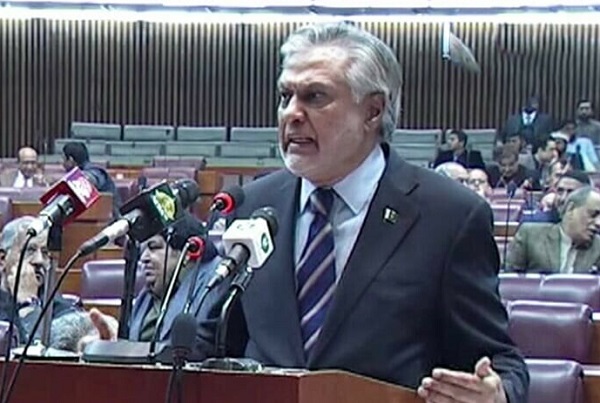KARACHI: Pakistan Stock Exchange above the 98,000 mark on Friday as share prices surged more than 2,000 points in intraday trade
ISLAMABAD: The National Assembly is set to vote on the Finance (Supplementary) Bill, 2023, generally known as the mini-budget, on Friday.
Finance Minister Ishaq Dar presented the bill in both houses of parliament on Wednesday as the government rushed to fulfil the International Monetary Fund’s (IMF) conditions for the release of a desperately needed bailout.
The finance bill outlines tax measures to raise an additional Rs170 billion in the next four and half months to meet the last prior actions agreed upon with the IMF.
Two measures — raising the federal excise duty (FED) on cigarettes and increasing the general sales tax (GST) rate from 17 per cent to 18pc — have already been implemented through statutory regulatory orders (SROs). The Federal Board of Revenue (FBR) expects to generate Rs115bn from these two measures.
The finance bill proposes the following:
GST to be increased from 17pc to 18pc; GST on luxury items to increase to 25pc
On first class and business class air tickets, federal excise duty of 20pc of the airfare or Rs50,000, whichever is higher
10pc withholding adjustable advance tax on the bills of wedding halls
Increase in FED on cigarettes, and aerated and sugary drinks
Increase in FED on cement from Rs1.5 to Rs2 per kg
Benazir Income Support Programme budget increased to Rs400bn from Rs360bn
The finance bill also proposes increasing GST from 17pc to 25pc on 33 categories of goods covering 860 tariff lines — including high-end mobile phones, imported food, decoration items, and other luxury goods. However, this raise will be notified through another notification.
Through the finance bill, the excise duty on cement has been raised from Rs1.5 to Rs2 per kilogram, a measure estimated to fetch another Rs6bn.
The excise duty on carbonated/aerated drinks has been raised to 20pc from 13pc to raise an additional Rs10bn for the government.
A new excise tax of 10pc was proposed on non-aerated drinks like juices — mango, orange, etc. — to raise an additional tax of Rs4bn.
The increase in excise duty on business-, first- and club-class air tickets will raise an additional Rs10bn for the government. A tax rate of 20pc (or Rs50,000, whichever is higher) has been proposed on the value of air tickets.
The government has also proposed a 10pc withholding tax on functions and gatherings held in marriage halls, marquees, hotels, restaurants, commercial lawns, clubs, community places, or other places. The FBR expects to raise Rs1bn to Rs2bn from this tax.
These measures proposed through the finance bill are in addition to earlier steps agreed upon with the IMF, including increasing electricity and gas rates and allowing a free-floating exchange rate.
The IMF has given a deadline of March 1 for the implementation of all these measures. However, the bulk of tax measures worth Rs115bn was already implemented from Feb 14 through SROs.
To offset the inflationary impact of the budget, the government proposed that handouts under the BISP welfare scheme be increased to a total of Rs400bn from Rs360bn.
You May Also Like
TEHRAN: The head of Iran’s Revolutionary Guards described the arrest warrant issued by the International Criminal Court for Israeli Prime
LOWER KURRAM: The death toll in yesterday’s gun attack on passenger vans in Khyber Pakhtunkhwa’s Lower Kurram has risen to 42,






